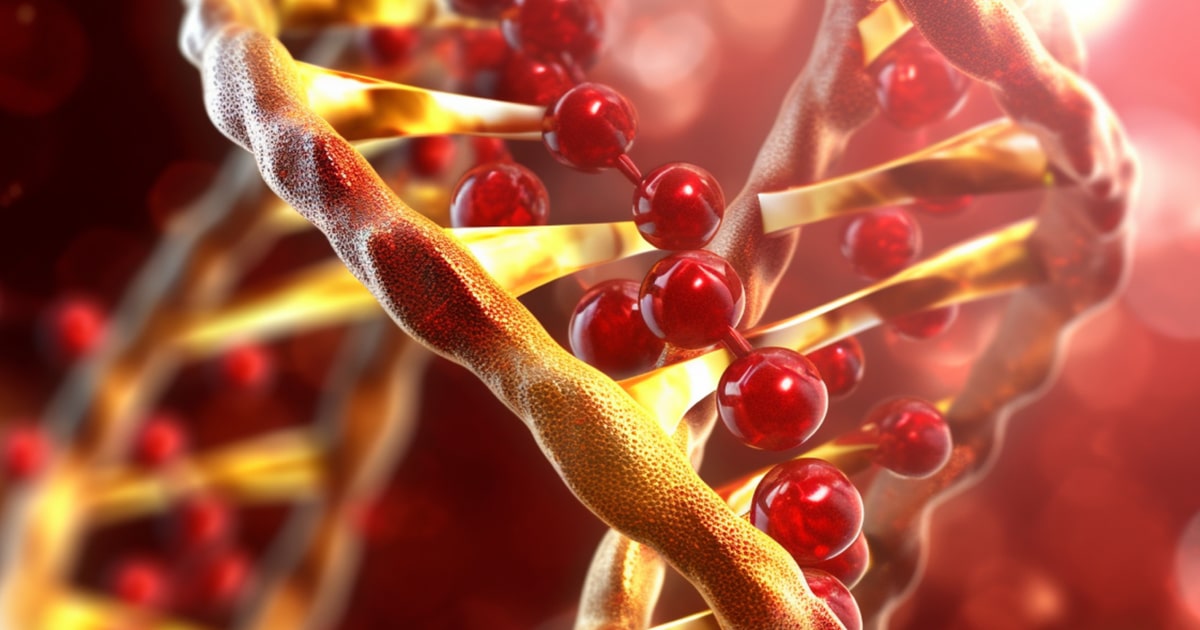
Expert Reviewed By: Dr. Brandon Colby MD
Isolated Nonsyndromic Congenital Heart Disease (INCHD) is a complex and challenging condition that affects the structure and function of the heart. This disease presents itself at birth and can have a significant impact on the quality of life for those affected. In this article, we will delve into understanding INCHD, how it is diagnosed, and the role genetic testing plays in managing this condition.
Understanding Isolated Nonsyndromic Congenital Heart Disease
INCHD is a type of congenital heart disease that occurs without any other associated syndromes or abnormalities. This means that the heart defects are not part of a larger genetic syndrome, such as Down syndrome or Turner syndrome. The exact cause of INCHD is not well understood, but it is believed to be a result of a combination of genetic and environmental factors.
Some common types of heart defects seen in INCHD include:
- Septal defects: These are holes in the walls that separate the heart's chambers.
- Valve abnormalities: These occur when the heart's valves do not form correctly or function properly.
- Outflow tract obstructions: These involve the narrowing of the vessels that carry blood from the heart to the rest of the body.
INCHD can range in severity from mild to life-threatening, depending on the specific defect and its impact on the heart's function. Early diagnosis and intervention are crucial for improving outcomes and quality of life for those affected.
Diagnosing Isolated Nonsyndromic Congenital Heart Disease
Diagnosing INCHD typically involves a combination of physical examination, imaging studies, and specialized tests. Prenatal ultrasound can sometimes detect heart defects before birth, allowing for early intervention and planning. After birth, a thorough physical examination and assessment of the baby's heart sounds can provide clues about potential heart defects.
Further diagnostic tests may include:
- Echocardiogram: This noninvasive test uses sound waves to create detailed images of the heart's structure and function.
- Cardiac catheterization: This procedure involves inserting a small tube (catheter) into a blood vessel and guiding it to the heart to obtain detailed information about the heart's structure and pressure.
- Magnetic resonance imaging (MRI): This test uses a magnetic field and radio waves to create detailed images of the heart and surrounding structures.
The Role of Genetic Testing in Isolated Nonsyndromic Congenital Heart Disease
Identifying Genetic Factors
While the exact cause of INCHD is not fully understood, research has shown that genetic factors play a significant role in the development of this condition. Genetic testing can help identify specific gene mutations or variations that may be associated with an increased risk of INCHD. This information can be valuable for understanding the underlying cause of the heart defect and guiding treatment decisions.
Family Planning and Prenatal Testing
For families with a history of INCHD, genetic testing can provide important information for family planning and prenatal care. If a known genetic mutation is identified in a parent or sibling, prenatal testing can be performed to determine if the fetus is also affected. This information can help families and healthcare providers make informed decisions about pregnancy management and potential interventions.
Guiding Treatment and Management
Genetic testing can also play a crucial role in guiding the treatment and management of INCHD. By identifying specific genetic factors, healthcare providers can better understand the underlying cause of the heart defect and tailor treatment plans accordingly. This may include surgical interventions, medications, and ongoing monitoring to ensure the best possible outcomes for those affected.
Future Research and Advancements
As our understanding of the genetic factors involved in INCHD continues to grow, so too does the potential for improved diagnosis, treatment, and management of this condition. Ongoing research into the genetic basis of INCHD will undoubtedly lead to advancements in our ability to identify at-risk individuals, develop targeted therapies, and ultimately improve the quality of life for those affected by this challenging condition.
In conclusion, understanding, diagnosing, and using genetic testing for Isolated Nonsyndromic Congenital Heart Disease is essential for improving the lives of those affected by this condition. By unraveling the complex genetic factors involved, we can better understand the underlying causes and develop more effective treatment strategies to ensure the best possible outcomes for individuals and families impacted by INCHD.
About The Expert Reviewer
Dr. Brandon Colby MD is a US physician specializing in the personalized prevention of disease through the use of genomic technologies. He’s an expert in genetic testing, genetic analysis, and precision medicine. Dr. Colby is also the Founder of and the author of Outsmart Your Genes.
Dr. Colby holds an MD from the Mount Sinai School of Medicine, an MBA from Stanford University’s Graduate School of Business, and a degree in Genetics with Honors from the University of Michigan. He is an Affiliate Specialist of the American College of Medical Genetics and Genomics (ACMG), an Associate of the American College of Preventive Medicine (ACPM), and a member of the National Society of Genetic Counselors (NSGC)